A Chamber Opera by Volition
It is amazing how little resources you will find looking for a definition of chamber opera. Most likely you will get around a definition similar to this:
chamber opera,
noun
an opera requiring few performers and a small orchestra
So is chamber opera simply a “small sister”, an opera written to be performed with a chamber ensemble rather than a full orchestra? If we want to track down the history of the term we have to turn to Benjamin Britten, who in the 1940s coined the term relating to works that could easily be taken on tour and performed in a variety of small performance spaces.
The Rape of Lucretia was the first example of the genre, and Britten followed it with Albert Herring, The Turn of the Screw and Curlew River. Other composers, including Hans Werner Henze, Harrison Birtwistle, Thomas Adès, George Benjamin and Philip Glass, have since adopted the term for their own works.
The term chamber opera, while coined in the 20th century also is used to describe smaller Baroque operatic works such as Pergolesi’s La serva padrona and Charpentier’s Les Arts florissants.
Tamar
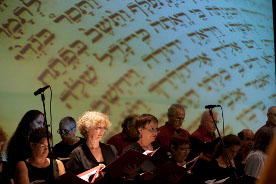 Opera in three acts by Marc Lavry
Opera in three acts by Marc Lavry
Savitri
 A Chamber Opera by Gustav Holst
A Chamber Opera by Gustav Holst
Rita
 By Gaetano Donizetti
By Gaetano Donizetti
Diary of One Who Disappeared
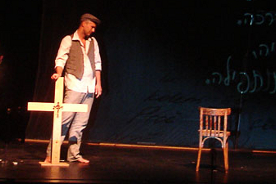 A Dramatic Song Cycle
A Dramatic Song Cycle
By Leos Janacek
The Human Voice
 Monodrama in One Act by Francis Poulenc
Monodrama in One Act by Francis Poulenc
The Telephone
 Chamber Opera in One Act by Gian Carlo Menotti
Chamber Opera in One Act by Gian Carlo Menotti
Mozart and Salieri
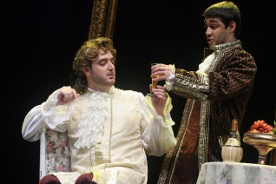 One-act Opera in Two Scenes
One-act Opera in Two Scenes
by Nikolai Rimsky-Korsakov
Bastien and Bastienne
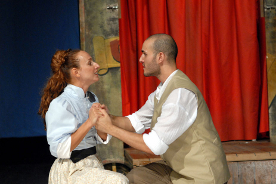 One-act Singspiel / Comic Opera by Wolfgang Amadeus Mozart
One-act Singspiel / Comic Opera by Wolfgang Amadeus Mozart
Pimpinone
 Comic Opera in Three Acts by George Philip Telemann
Comic Opera in Three Acts by George Philip Telemann
La Serva Padrona
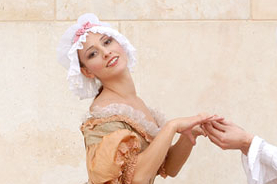 Intermezzo in Two Parts by Giovanni Battista Pergolesi
Intermezzo in Two Parts by Giovanni Battista Pergolesi
The Inn of Spirits
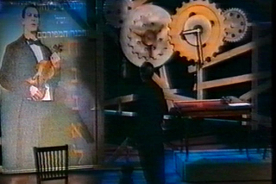 A Chamber Opera by Moshe Zorman
A Chamber Opera by Moshe Zorman



